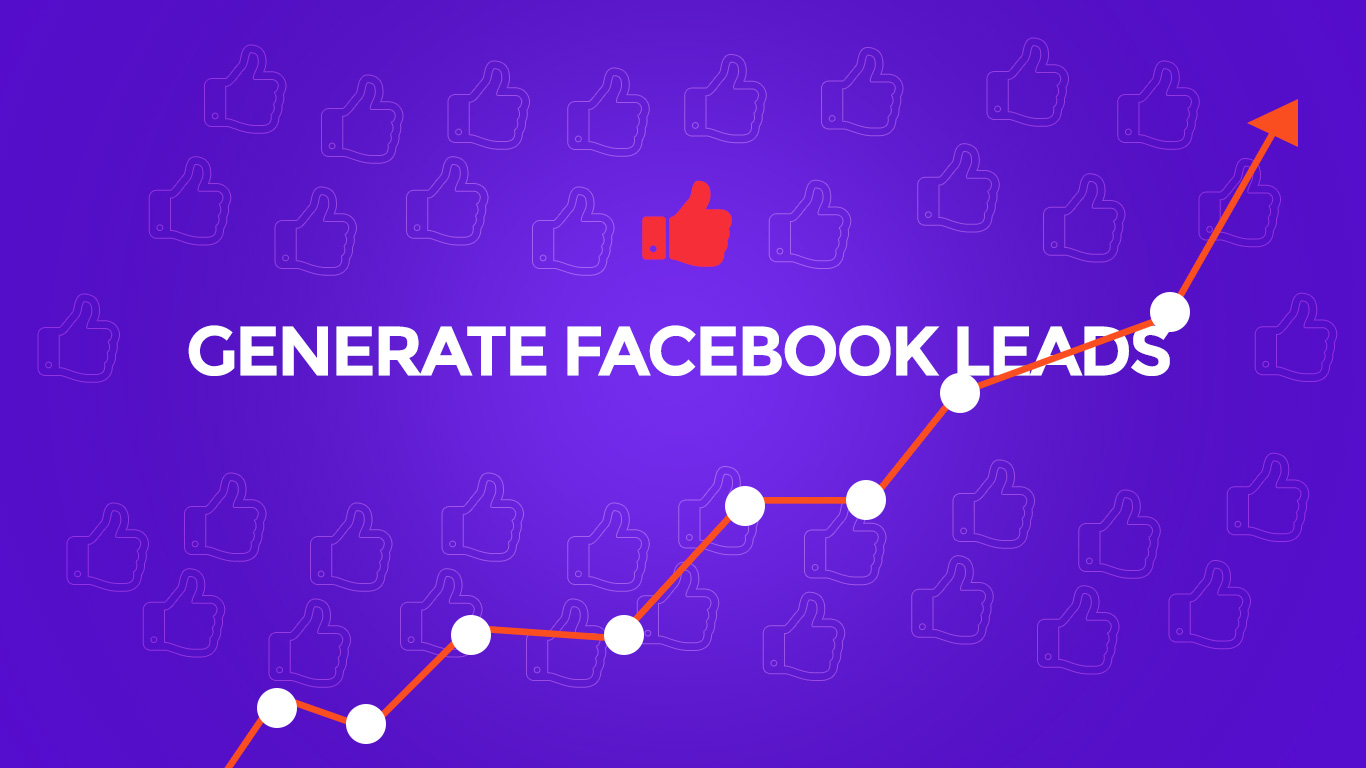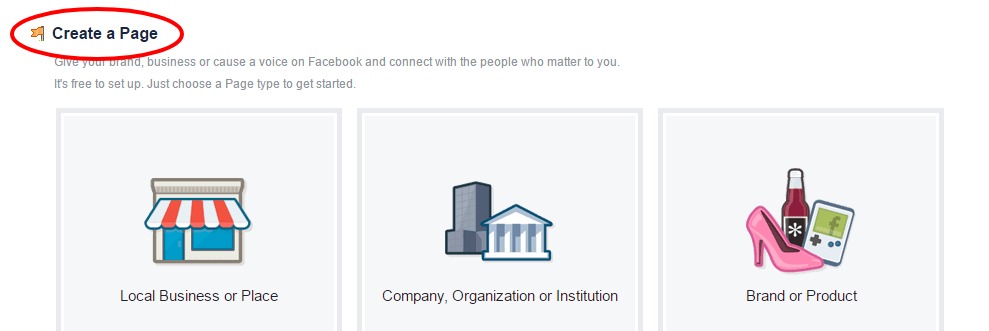
How Facebook Can Help You Find New Leads For Your Business
Since the launch of Facebook in 2004, the social media network has grown up to be the most popular and commonly used platform around the entire world.
According to Zephoria Digital Marketing, there are over 1.94 billion active users on this social media platform, with an 18% average increase in active users year after year.
Of the 1.94 billion active users, at least 1.28 billion logs into their own Facebook account daily. Continuing to grow, Facebook receives as much as five new user registrations every second of every day. As much as 76% of all women have a Facebook account and up to 66% of all men also have a Facebook profile.
We’re not telling you about these statistics to show you how many friends you can make on this platform, but rather sharing valuable data to you that will help you realize the potential Facebook might have for your business as an online marketing tool.
Thousands of businesses are already using Facebook to promote themselves, their products, their services, events, competitions and many other aspects of their brand – and if you’re not also utilizing Facebook as a lead generating machine, then you are surely missing out – read on we are about to share with you some essential tips that will help you jump on this lead generating goldmine. However, not all marketers agree on this though. Nevertheless, it is an indispensable tool in a marketer’s arsenal. And if done well can increase leads significantly.
While there are numerous social media platforms, with Instagram recently being crowned the fastest growing one of all, Facebook remains an old time favorite amongst many internet users.
Facebook is often seen as the “original” social media network and the developers behind this invention continue to amaze its users with fascinating updates that not only enhances the experience of the average user but also adds more value to Facebook as a marketing tool for business and website owners.
Facebook As A Marketing Tool
Facebook is not only an excellent platform for staying in touch with your friends, but it has also become an effective platform for promoting products and services that your business offers to the public (and to other businesses).
The platform has integrated a variety of methods that can now be used as marketing tools; thus giving business and website owners multiple opportunities for using the platform as one of their primary go-to sources for finding leads, new customers and for increasing their brand awareness.
When it comes to using Facebook as a marketing tool, you have two options:
- Utilize friend requests, pages and groups to promote your business without having any expenses from your side.
- Invest some money in Facebook Ads to put your products and services directly in front of your target audience.
These two options can be used individually. You might prefer to only utilize the unpaid features of the social media platform to promote your business. Or you can use them together for even better results.
Let’s explore each of these options in more detail to help you better understand what to expect from each offer. And, of course, how you can combine the two strategies for optimum results.
Free Marketing Methods
Let’s start off by exploring the various ways in which Facebook can be used as a marketing tool without having to spend any money on advertisements. We are starting off with these methods as this can greatly increase the success of your marketing efforts on this social media platform. Even if you are planning to utilize Facebook’s advertising platform, it is also a good idea to utilize the free marketing methods at the same time.
These strategies also work great when combined with a social media outreach campaign. As such a campaign, even though it often costs money, can increase the results you gain from the strategies you utilize within Facebook’s internal features – which primarily includes pages and groups.
A Page For Your Business
When it comes to using Facebook as a free marketing tool, the very first thing you need to do is create a page dedicated to your website or business.
If your business targets an offline market, it is still a good idea to have a website that represents your business and offer visitors more information about what you can do for them. This should be the very first step – you will need a personal Facebook account to set up a page, but this is also 100% free and only takes a few steps.
Once you have logged into your account, simply navigate to the “Create New Page” button in the left sidebar and follow the instructions that Facebook offers you.

Remember to choose an appropriate page type when you create a page as this will affect some of the features that are made available to you within your page’s administration panel.
Once you have created a page for your business, you need to personalize the page to represent your brand professionally. Start by adding a profile picture and a cover photo.
If you are not a creative person, then hire someone to design professional assets for your page. Remember that first impressions count – so you want to impress any person that lands on your company’s Facebook page from the very first moment.
Apart from the profile picture and cover photo, you should also complete as many fields as possible in the “about” tab as this will add more authority to your company’s presence on Facebook.
The next step is to grow a number of followers your page has. This can be done by inviting your friends to like the page, by adding a “like” button to your website and by becoming active in different groups on Facebook – and then linking to your company’s Facebook page.
Note that, should you use Facebook groups as a marketing strategy for increasing your page likes, you should not join up and immediately post links to your page and your website. Instead, take some time to get to know the people that are also part of the group.
Comment on their posts and share helpful information in the group. Once the people start to recognize you, you can drop a link to your Facebook page, as well as to specific pages on your website, every now-and-then. It is important only to do this in groups that are related to the particular industry in which your business specializes.
For example, you do not want to join a group about fixing cars if your business is selling weight loss products. But it would be a good idea to join a group about healthy eating if your business specializes in weight loss products.
Groups Of Likeminded People
While it is a really good idea to join groups related to your niche to increase your page likes, drive more visitors to your website and, of course, capture some leads. Another excellent idea is to create your own group.
You will need to do some research before you can start your groups. Find topics that people are very interested in and are often talking about. You can then create a group around that particular topic. The topic should be related to your company’s products and services.
For example, if you sell cookware, you might start one group on healthy recipes and another group on baking. As the group member count increases, you can start to share links to products you sell and tell the members of the group that the cookware you sell will help them out when they are preparing the recipes you are sharing in the group.
Facebook Ads
Apart from the marketing tools that Facebook offers at no cost to you or your business, they also have an advertisement platform that has gained a lot of reputation in the last few years. Facebook collects valuable data about all of their users. Thus they can put your ads in front of the right people that will be interested in buying the products and services your business offers.
One particular aspect of Facebook Ads that people find beneficial is the fact that these ads are much more cost-effective than some of the other display ad networks out there – include Google AdWords.
Some people can get high-quality clicks from Facebook Ads for mere cents per click. With Google AdWords, on the other hand, companies often have to pay quite a lot of money to get a high-quality click.
To utilize Facebook Ads as part of your Facebook marketing strategy, you should first have an official page that represents your business.
After that, you can visit your page and choose any of the options that Facebook Ads have available. The most popular ads used on the platform, however, is website clicks and page likes. Let’s take a closer look at these:
- When you use Facebook Ads for website clicks, you can set up an ad to get people to visit your website.
- When you use Facebook Ads for followers, you can set up an ad to get more people to like your company’s Facebook page.
Each type of ad has different options to choose from. It is important to note that you may not get perfect results with your very first ad campaign. But you can surely learn from each campaign – even if it is a complete failure. Continue to adjust the settings of your Facebook Ads campaigns until you get a master campaign that gives you a high ROI (Return On Investment).
Conclusion
Even though Facebook was originally developed to help friends and family stay in touch with each other, the platform now poses as one of the most effective online marketing tools for businesses.
Any company, whether based online or offline, can now utilize this platform as a powerful marketing tool to engage with their audience, collect new leads and boost their business to new heights.
If you’re new to the Facebook marketing game, simply follow the tips and guidance we’ve shared here and you’ll soon be able to reap the benefits that marketing on Facebook can have for your business.
About the Author:
Stevan Mcgrath is a digital marketing professional who possesses expertise in brand design and development. Stevan is passionate about utilizing his diverse skill sets for new and innovative online marketing strategies. He has worked as a freelancer and a contributor to Provenseo. Despite having a wide influential reach, he seeks client satisfaction as his topmost priority. He also writes blog posts on recent digital marketing trends. To know his work and more details you can follow him on Facebook, Twitter, LinkedIn, Google+.